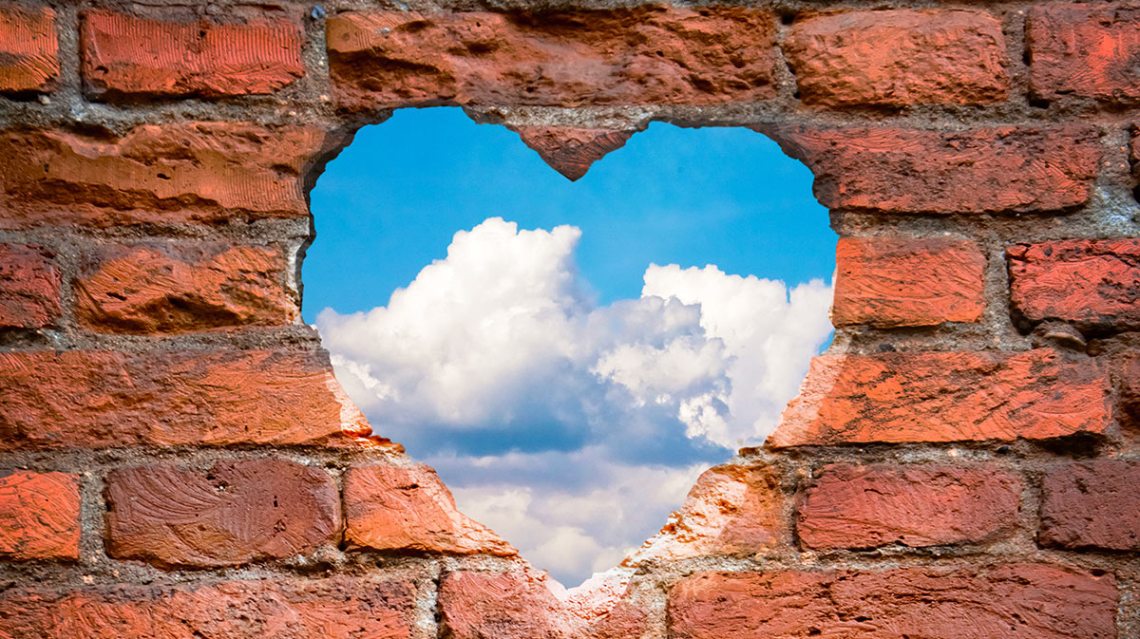
These walls will melt
“I would prefer to share the apartment with a woman— preferably an Indian or a Pakistani,” I wrote. I was sending an email to the Netherlands to request student accommodation. I was going to spend three weeks that summer at Maastricht University after enrolling into a Masters programme there. And after I sent the email, I stared at the screen for a moment, wondering what made me write that.
A week later, I received a mail from Lahore in my inbox. Shazia. She was as lovely as her name, and a pathologist like me. And strangely she said she too had made a request similar to mine to the accommodation desk. I gelled with Shazia instantly. Even before we met, we were discussing Dhoop Kinarey and Nihari, and planning shopping lists to bring for each other. Instant dosa mix versus Shaan Biryani masala (I had the better deal!).
At Maastricht, it was great to get back from work and to be able to speak in a language which rolled off our tongues so easily. When we cooked our dinner, the apartment often smelled of familiar spices. I remember one Saturday morning, as I worked on my assignments, I was playing some Hindi film music softly, so as not to disturb her, and she peeped in to tell me to raise the volume. I stared for a moment and realized that she was familiar with our songs too! Our apartment always resounded with music from that day- Kishore Kumar, Nazia and Zoheb Hasan, Mohammed Rafi, Nusrat Fateh Ali Khan- all entertained us together.
Over the three weeks as I talked to her, I realized that we were hardly different. As she taught me to make delicious yakhni pulao, I learnt of tales of the partition, which she had heard from her father-in-law. The pain and the trauma of being torn apart from your family, of growing up in unfamiliar territory. And the heroic pride in successfully making a life and a name in these new surroundings. And yet wanting to reconnect in the sunset of life. A man-made hurdle called a visa was still obstructing people from connecting with their families seven decades after the partition. I continue to stay in touch with her. She is an integral part of my growing up. Her stories have left such a huge impact on me.
But not everyone is able to deal with loss like Shazia and her family did. I was thrown in with another colleague from Pakistan in another programme. As luck would have it, we were in the same group throughout the course. And even though it was subtle, his hostility towards me was obvious. In discussions, he would ignore my opinion completely. Everything I said was overridden. Was it because of my gender or my nationality or my religion? Or all of it together? After a point, it became hard to ignore his animosity.
But things changed overnight for me, when I heard the story of his life at an informal post-dinner discussion. His family had originally belonged to Gujarat. And had been forced to leave for Pakistan during the partition. As he talked about his past, his bitterness became apparent. Religion, nations, history, people- they all seemed to have taken a toll on his life. Suddenly, the reason for his hostile behaviour seemed forgivable. I sent him a note that night hoping time would heal his hurt. Over the next six years, we were thrown in together in several courses in several countries, and I saw him melt. Talking to me was no longer taboo territory for him. He sent me pictures of his new born daughter. The barriers simply dissolved with time.
Travel has taught me how small the world is. I have heard from friends of killings in civil wars in Addis Ababa, of illegal weapons and the fear of being shot down in Mexico, and of bans on communication in Myanmar. Between all this strife, one thing is consistently similar in people around the world. All people want is a safe life where they can live with their loved ones in peace and comfortably co-exist with their neighbours. Everything else is an artificial divide.
The world is shrinking rapidly. If you can look beyond skin colour, sexual preferences, religious choices, food habits and cultural oddities, everyone is the same. These walls will melt if we just pause to listen and understand. If only we can sift the real voices from the noise that surrounds us.
Share this:
- Click to share on Twitter (Opens in new window)
- Click to share on Facebook (Opens in new window)
- Click to print (Opens in new window)
- Click to share on WhatsApp (Opens in new window)
- Click to share on Tumblr (Opens in new window)
- Click to share on Pinterest (Opens in new window)
- Click to email this to a friend (Opens in new window)
Related

Thinking-vinking in another language

5 Comments
Lakshmi iyer
Dear Anshu,you and your words…hats off to you! How well you are able to melt your thoughts into beautiful expressions and convey what has to be in no other way,but the right way! I have grown to be a big fan of yours…hoping to meet you sometime 👍👍
Anshu
Inshallah we will! Though I think I have met you in Pondicherry during the Cytocon there
Rachna
Love the way u describe things.. Indeed things become so simple n easy if we shed our ego n be ready to accept whatever comes our way💞💞
Anshu
Thanks Rachna. The block is in our mindsets. As long as we measure people by our parameters they will never measure up to our expectations. Let them be.
Lakshmi iyer
I have been to pondicherry only once…2013 Oct..but, I don’t think I ever met you ..I hadn’t accompanied venkat to the conference….